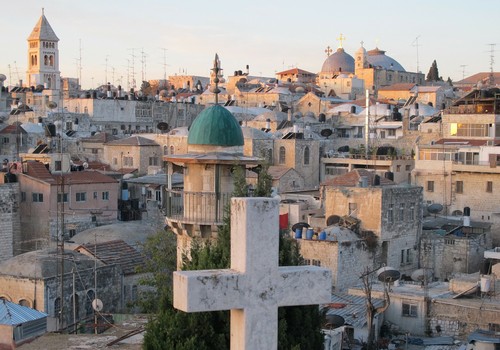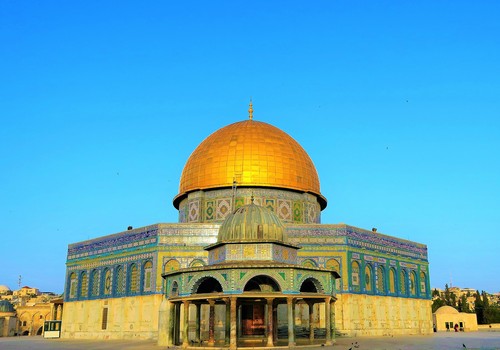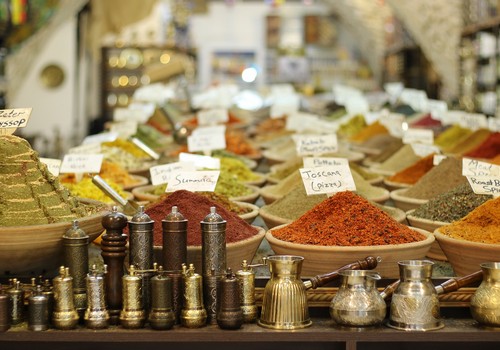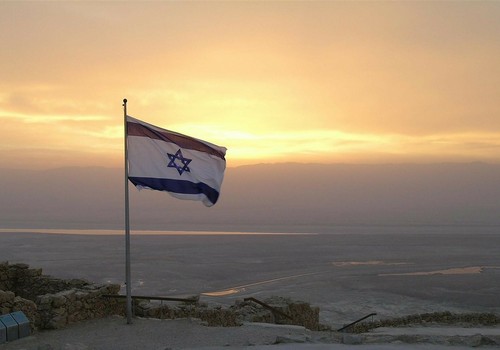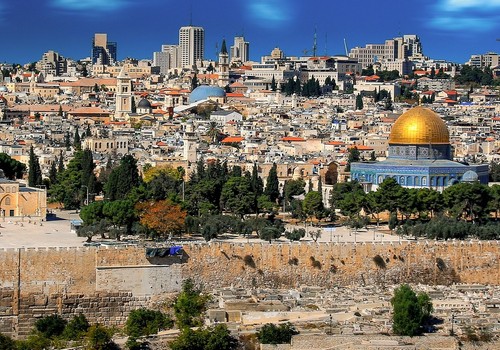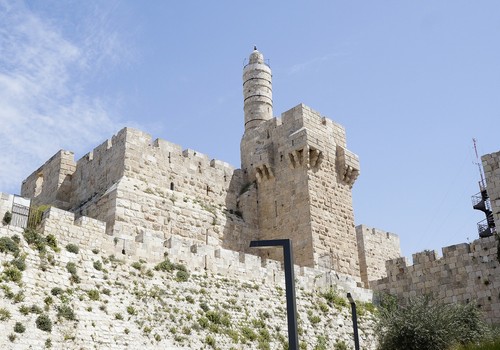Arriving on flight from
I'm not flying
Atlanta, Hartsfield Atlanta Int'l Airport (ATL)
Baltimore Washington Int'l Airport; MD (BWI)
Boston - Logan, MA (BOS)
Chicago O'Hare Int'l Airport, IL (ORD)
Dallas/Ft. Worth, TX (DFW)
Denver International Airport, CO (DEN)
Las Vegas, NV (LAS)
Los Angeles, CA - Int'l (LAX)
Miami, FL (MIA)
New York - John F. Kennedy, NY (JFK)
New York - La Guardia, NY (LGA)
New York - Newark, NJ (EWR)
Philadelphia, PA - Int'l (PHL)
San Francisco - Int'l Airport, SA (SFO)
Washington DC - Dulles Int'l (IAD)
Aberdeen, SD (ABR)
Abilene, TX (ABI)
Akron, OH (CAK)
Albany, GA (ABY)
Albany, NY (ALB)
Albuquerque, NM (ABQ)
Alexandria, La (ESF)
Allentown, PA (ABE)
Altoona, PA (AOO)
Amarillo, TX (AMA)
Anchorage, AK (ANC)
Ann Arbor, MI (ARB)
Anniston, AL (ANB)
Appelton/Neenah/Menasha, WI (ATW)
Asheville, NC (AVL)
Aspen Snowmass, CO (ASE)
Athens, GA (AHN)
Athens, OH (ATO)
Atlantic City, NJ (ACY)
Augusta, GA (AGS)
Augusta, ME (AUG)
Austin, TX (AUS)
Bakersfield, CA (BFL)
Bangor, ME (BGR)
Baton Rouge, La (BTR)
Beaumont/Pt. Arthur, TX (BPT)
Beckley, WV (BKW)
Bellingham, WA (BLI)
Bemidji, MN (BJI)
Benton Harbour, MI (BEH)
Bethel, AK (BET)
Billings, MT (BIL)
Birmingham, AL (BHM)
Bismarck/Mandan, ND (BIS)
Bloomington, IL (BMI)
Bloomington, IN (BMG)
Bluefield, WV (BLF)
Boise, ID (BOI)
Borrego Springs, CA (BXS)
Bozeman, MT (BZN)
Bradford/Warren, PA/Olean, NY (BFD)
Brainerd, MN (BRD)
Bridgeport, CT (BDR)
Brookings, SD (BKX)
Brunswick, GA (BQK)
Buffalo/Niagara Falls, NY (BUF)
Bullhead City, NV (BHC)
Burbank, CA (BUR)
Burlington, IA (BRL)
Burlington, VT (BTV)
Butte, MT (BTM)
Carlsbad, CA (CLD)
Casper, WY (CPR)
Cedar City, UT (CDC)
Cedar Rapids, IA (CID)
Champaign, IL (CMI)
Charleston, SC (CHS)
Charleston, WV (CRW)
Charlotte, NC (CLT)
Charlottesville, VA (CHO)
Chattanooga, TN (CHA)
Cheyenne, WY (CYS)
Chicago, IL (CHI)
Chicago, Midway, IL (MDW)
Chico, CA (CIC)
Cincinnati, OH (CVG)
Clarksburg, WV (CKB)
Cleveland, Burke Lakefront, OH (BKL)
Cleveland, Hopkins, OH (CLE)
Cody/Powell/Yellowstone, WY (COD)
Coffmann Cove, AK (KCC)
College Station/Bryan, TX (CLL)
Colorado Springs, CO (COS)
Columbia, SC (CAE)
Columbus, GA (CSG)
Columbus, OH (CMH)
Concord, CA (CCR)
Cordova, AK (CDV)
Corpus Christi, TX (CRP)
Craig, AK (CGA)
Crescent City, CA (CEC)
Dallas, Love Field, TX (DAL)
Danville, VA (DAN)
Dayton, OH (DAY)
Daytona Beach, FL (DAB)
Decatur, IL (DEC)
Des Moines, IA (DSM)
Detroit City, MI (DET)
Detroit Metropolitan Area, MI (DTT)
Detroit Metropolitan Wayne County Airport, MI (DTW)
Devils Lake, ND (DVL)
Dillingham, AK (DLG)
Dothan, AL (DHN)
Dubois, PA (DUJ)
Dubuque, IA (DBQ)
Duluth, MN/Superior, WI (DLH)
Durango, CO (DRO)
Dutch Harbor, AK (DUT)
Eau Clarie, WI (EAU)
El Paso, TX (ELP)
Elkhart, IN (EKI)
Elko, NV (EKO)
Elmira, NY (ELM)
Ely, NV (ELY)
Erie, PA (ERI)
Escabana, MI (ESC)
Eugene, OR (EUG)
Eureka, CA (ACV)
Evansville, IN (EVV)
Fairbanks, AK (FAI)
Fargo, ND, MN (FAR)
Farmington, NM (FMN)
Fayetteville, AR (FYV)
Fayetteville/Ft. Bragg, NC (FAY)
Flagstaff, AZ (FLG)
Flint, MI (FNT)
Florence, SC (FLO)
Fort Dodge, IA (FOD)
Fort Huachuca/Sierra Vista, AZ (FHU)
Fort Lauderdale/Hollywood, FL (FLL)
Fort Myers, Metropolitan Area, FL (FMY)
Fort Myers, Southwest Florida Reg, FL (RSW)
Fort Smith, AR (FSM)
Fort Walton Beach, FL (VPS)
Fort Wayne, IN (FWA)
Franklin/Oil City, PA (FKL)
Fresno, CA (FAT)
Gadsden, AL (GAD)
Gainesville, FL (GNV)
Gilette, WY (GCC)
Glasgow, MT (GGW)
Glendive, MT (GDV)
Grand Canyon, AZ (GCN)
Grand Forks, ND (GFK)
Grand Junction, CO (GJT)
Grand Rapids, MI (GRR)
Grand Rapids, MN (GPZ)
Great Falls, MT (GTF)
Green Bay, WI (GRB)
Greenbrier/Lewisburg, WV (LWB)
Greensboro/Winston Salem, NC (GSO)
Greenville, MS (GLH)
Greenville, NC (PGV)
Greenville/Spartanburg, SC (GSP)
Groton/New London, CT (GON)
Gulfport/Biloxi, MS (GPT)
Gunnison/Crested Butte, CO (GUC)
Haines, AK (HNS)
Hancock, MI (CMX)
Harlington/South Padre Island, TX (HRL)
Harrisburg, PA - Harrisburg Int'l (MDT)
Harrisburg, PA - Harrisburg Skyport (HAR)
Hartford, CT/Springfield, MA (BDL)
Havre, MT (HVR)
Helena, MT (HLN)
Hibbing, MN (HIB)
Hickory, NC (HKY)
Hilo, HI (ITO)
Hilton Head Island, SC (HHH)
Homer, AK (HOM)
Honolulu, HI (HNL)
Hoonah, AK (HNH)
Houston, Hobby, TX (HOU)
Houston, Intercontinental, TX (IAH)
Huntington, OH (HTS)
Huntsville, AL (HSV)
Huron, SD (HON)
Hyannis, MA (HYA)
Hydaburg, AK (HYG)
Idaho Falls, ID (IDA)
Iliamna, AK (ILI)
Imperial, CA (IPL)
Indianapolis, IN (IND)
International Falls, MN (INL)
Inykern, CA (IYK)
Ithaca/Cortland, NY (ITH)
Jackson Hole, WY (JAC)
Jackson, MI (JXN)
Jackson, MS (JAN)
Jackson, TN (MKL)
Jacksonville, FL (JAX)
Jacksonville, NC (OAJ)
Jamestown, ND (JMS)
Jamestown, NY (JHW)
Johnstown, PA (JST)
Joplin, MO (JLN)
Juneau, AK - Juneau Int'l (JNU)
Kahului, HI (OGG)
Kalamazoo/Battle Creek, MI (AZO)
Kalispell, MT (FCA)
Kamuela, HI (MUE)
Kansas City, MO - Int'l (MCI)
Kapalua West, HI (JHM)
Kaunakakai, HI (MKK)
Kenai, AK (ENA)
Ketchikan, AK (KTN)
Key West, FL (EYW)
Killeem, TX (ILE)
King Salomon, AK (AKN)
Kingston, NC (ISO)
Klamath Fall, OR (LMT)
Klawock, AK (KLW)
Knoxville, TN (TYS)
Kodiak, AK (ADQ)
Kona, HI (KOA)
Kotzbue, AK (OTZ)
La Crosse, WI (LSE)
Labouchere Bay, AK (WLB)
Lafayette, IN (LAF)
Lafayette, La (LFT)
Lake Charles, La (LCH)
Lake Havasu City, AZ (HII)
Lake Tahoe, CA (TVL)
Lanai City, HI (LNY)
Lancaster, PA (LNS)
Lansing, MI (LAN)
Laramie, WY (LAR)
Laredo, TX (LRD)
Latrobe, PA (LBE)
Laurel/Hattisburg, MS (PIB)
Lawton, OK (LAW)
Lebanon, NH (LEB)
Lewiston, ID (LWS)
Lewistown, MT (LWT)
Lexington, KY (LEX)
Lihue, HI (LIH)
Lincoln, NE (LNK)
Little Rock, AR (LIT)
Long Beach, CA (LGB)
Long Island, AK (LIJ)
Long Island, Islip, NY - Mac Arthur (ISP)
Longview/Kilgore, TX (GGG)
Louisville, KY (SDF)
Lubbock, TX (LBB)
Lynchburg, VA (LYH)
Macon, GA (MCN)
Madison, WI (MSN)
Manchester, NH (MHT)
Marathon, FL (MTH)
Marquette, MI (MQT)
Martha's Vineyard, MA (MVY)
Mason City, IA (MCW)
Mattoon, IL (MTO)
McAllen, TX (MFE)
Medford, OR (MFR)
Melbourne, FL (MLB)
Memphis, TN (MEM)
Merced, CA (MCE)
Meridian, MS (MEI)
Metlakatla, AK (MTM)
Midland/Odessa, TX (MAF)
Miles City, MT (MLS)
Milwaukee, WI (MKE)
Minneapolis - St. Paul Int'l Airport, MN (MSP)
Minot, ND (MOT)
Missula, MT (MSO)
Mitchell, SD (MHE)
Mobile, AL - Pascagoula, MS (MOB)
Modesto, CA (MOD)
Moline/Quad Cities, IL (MLI)
Monroe, La (MLU)
Monterey, CA (MRY)
Montgomery, AL (MGM)
Montrose/Tellruide, CO (MTJ)
Morgantown, WV (MGW)
Moses Lake, WA (MWH)
Mt. McKinley, AK (MCL)
Muscle Shoals, AL (MSL)
Muskegon, MI (MKG)
Myrtle Beach, SC (MYR)
Nantucket, MA (ACK)
Naples, FL (APF)
Nashville, TN (BNA)
New Bern, NC (EWN)
New Haven, CT (HVN)
New Orleans, La (MSY)
New York, NY (NYC)
Newburgh, NY (SWF)
Newport News/Williamsburg, VA (PHF)
Niagara Falls Int'l (IAG)
Nome, AK (OME)
Norfolk/Virginia Beach, VA (ORF)
North Bend, OR (OTH)
Oakland, CA (OAK)
Oklahoma City, OK - Will Rogers World (OKC)
Omaha, NE (OMA)
Ontario, CA (ONT)
Orange County (Santa Ana), CA (SNA)
Orlando (ORL)
Orlando Int'l Airport, FL (MCO)
Oshkosh, WI (OSH)
Owensboro, KY (OWB)
Oxnard, CA (OXR)
Paducah, KY (PAH)
Page/Lake Powell, AZ (PGA)
Pakersburg, WV/Marietta, OH (PKB)
Palm Springs, CA (PSP)
Palmdale/Lancaster, CA (PMD)
Panama City, FL (PFN)
Pasco, WA (PSC)
Pellston, MI (PLN)
Pendelton, OR (PDT)
Pensacola, FL (PNS)
Peoria/Bloomington, IL (PIA)
Petersburg, AK (PSG)
Phoenix, AZ - Sky Harbor Int'l (PHX)
Pierre, SD (PIR)
Pittsburgh Int'l Airport, PA (PIT)
Plattsburgh, NY (PLB)
Pocatello, ID (PIH)
Port Angeles, WA (CLM)
Portland Int'l, OR (PDX)
Portland, ME (PWM)
Poughkeepsie, NY (POU)
Presque Island, ME (PQI)
Providence, RI (PVD)
Prudhoe Bay, AK (SCC)
Pueblo, CO (PUB)
Pullman, WA (PUW)
Quincy, IL (UIN)
Raleigh/Durham, NC (RDU)
Rapid City, SD (RAP)
Reading, PA (RDG)
Redding, CA (RDD)
Redmond, OR (RDM)
Reno, NV (RNO)
Rhinelander, WI (RHI)
Richmond, VA (RIC)
Roanoke, VA (ROA)
Rochester, MN (RST)
Rochester, NY (ROC)
Rock Springs, WY (RKS)
Rockford, IL (RFD)
Rockland, ME (RKD)
Rocky Mount - Wilson, NC (RWI)
Sacramento, CA (SMF)
Saginaw/Bay City/Midland, MI (MBS)
Salem, OR (SLE)
Salinas, CA (SNS)
Salisbury, MD (SBY)
Salt Lake City, UT (SLC)
San Angelo, TX (SJT)
San Antonio, TX (SAT)
San Diego - Lindberg Field Int'l, CA (SAN)
San Jose, CA (SJC)
San Luis Obisco, CA (SBP)
Santa Barbara, CA (SBA)
Santa Maria, CA (SMX)
Santa Rosa, CA (STS)
Sarasota/Bradenton, FL (SRQ)
Savannah, GA (SAV)
Scottsdale, AZ (SCF)
Seattle/Tacoma, WA (SEA)
Shenandoah Valley/Stauton, VA (SHD)
Sheridan, WY (SHR)
Shreveport, La (SHV)
Sidney, MT (SDY)
Sioux City, IA (SUX)
Sioux Falls, SD (FSD)
Sitka, AK (SIT)
Skagway, AK (SGY)
South Bend, IN (SBN)
Spokane, WA (GEG)
Springfield, IL (SPI)
Springfield, MO (SGF)
St. George, UT (SGU)
St. Louis - Lambert, MO (STL)
State College/Belefonte, PA (SCE)
Steamboat Springs, CO (HDN)
Stockton, CA (SCK)
Sun Valley, ID (SUN)
Syracuse, NY (SYR)
Talkeetna, AK (TKA)
Tallahassee, FL (TLH)
Tampa Int'l, FL (TPA)
Telluride, CO (TEX)
Terre Haute, IN (HUF)
Texarkana, AR (TXK)
Thief River Falls, MN (TVF)
Thorne Bay, AK (KTB)
Toledo, OH (TOL)
Traverse City, MI (TVC)
Trenton/Princeton, NJ (TTN)
Tri-Cities Regional, TN/VA (TRI)
Tucson, AZ (TUS)
Tulepo, MS (TUP)
Tulsa, OK (TUL)
Tuscaloosa, AL (TCL)
Twin Falls, ID (TWF)
Tyler, TX (TYR)
Utica, NY (UCA)
Vail, CO (EGE)
Valdez, AK (VDZ)
Valdosta, GA (VLD)
Vernal, UT (VEL)
Vero Beach/Ft. Pierce, FL (VRB)
Visalia, CA (VIS)
Waco, TX (ACT)
Walla Walla, WA (ALW)
Washington DC - Ronald Reagan National (DCA)
Washington, DC (WAS)
Waterloo, IA (ALO)
Watertown, SD (ATY)
Wausau/Stevens Point, WI (CWA)
Wenatchee, WA (EAT)
West Palm Beach, FL (PBI)
West Yellowstone, MT (WYS)
White Plains, NY (HPN)
Wichita Falls, TX (SPS)
Wichita, KS (ICT)
Wilkes Barre/Scranton, PA (AVP)
Williamsport, PA (IPT)
Williston, ND (ISL)
Wilmington, NC (ILM)
Wolf Point, MT (OLF)
Worcester, MA (ORH)
Worland, WY (WRL)
Wrangell, AK (WRG)
Yakima, WA (YKM)
Yakutat, AK (YAK)
Yuma, AZ (YUM)
Dushanbe (Duschanbe) (DYU)
Kabul - Khwaja Rawash (KBL)
Tirana - Rinas (TIA)
Algiers (ALG)
Annaba (AAE)
Constantine (CZL)
Oran (Ouahran) (ORN)
Pago Pago (PPG)
Andorra La Vella H/P (ALV)
Bengueka (BUG)
Cabinda (CAB)
Luanda - 4 de Fevereiro (LAD)
Anguilla (AXA)
Antigua (ANU)
Buenos Aires (BUE)
Buenos Aires, Ezeiza Int'l Airport (EZE)
Buenos Aires, Jorge Newbery (AEP)
Cordoba (COR)
Iguazu, Cataratas (IGR)
Mar del Plata (MDQ)
Mendoza (MDZ)
Rosario (ROS)
Salta, Gen Belgrano (SLA)
San Carlos de Bariloche (BRC)
Santa Rosa (RSA)
Eriwan (Yerevan, Jerevan) (EVN)
Aruba (AUA)
Adelaide (ADL)
Albany (ALH)
Albury (ABX)
Alice Springs (ASP)
Ayers Rock (AYQ)
Ayr (AYR)
Ballina (BNK)
Bamaga (ABM)
Blackwater (BLT)
Bowen (ZBO)
Brampton Island (BMP)
Brisbane (BNE)
Broken Hill (BHQ)
Broome (BME)
Bundaberg (BDB)
Burnie (Wynyard) (BWT)
Cairns (CNS)
Canberra (CBR)
Carnarvon (CVQ)
Casino (CSI)
Ceduna (CED)
Cessnock (CES)
Charters Towers (CXT)
Clermont (CMQ)
Coffs Harbour (CFS)
Collinsville (KCE)
Coober Pedy (CPD)
Cooktown (CTN)
Cooma (OOM)
Dalby (DBY)
Darwin (DRW)
Daydream Island (DDI)
Derby (DRB)
Devonport (DPO)
Dubbo (DBO)
Dunk Iceland (DKI)
Dysart (DYA)
Emerald (EDR)
Emerald (EMD)
Esperance (EPR)
Geelong (GEX)
Geraldton (GET)
Gladstone (GLT)
Gold Coast (OOL)
Goondiwindi (GOO)
Gove (Nhulunbuy) (GOV)
Great Keppel Island (GKL)
Griffith (GFF)
Groote Eyeland (GTE)
Groote Eylandt (GTI)
Gympie (GYP)
Hamilton (HLT)
Hamilton Island (HTI)
Hayman Island (HIS)
Hervey Bay (HVB)
Hinchinbrook Island (HNK)
Hobart (HBA)
Home Hill (HMH)
Ingham (IGH)
Innisfail (IFL)
Kalgoorlie (KGI)
Karratha (KTA)
Karumba (KRB)
Katherine (KTR)
King Island (KNS)
Kingscote (KGC)
Kowanyama (KWM)
Kununurra (KNX)
Launceston (LST)
Laverton (LVO)
Learmouth (Exmouth) (LEA)
Leinster (LER)
Leonora (LNO)
Lindeman Island (LDC)
Lismore (LSY)
Lizard Island (LZR)
Lockhart River (IRG)
Longreach (LRE)
Mackay (MKY)
Maitland (MTL)
Maryborough (MBH)
Meekatharra (MKR)
Melbourne - Tullamarine (MEL)
Merimbula (MIM)
Middlemount (MMM)
Mildura (MQL)
Moranbah (MOV)
Moree (MRZ)
Mount Gambier (MGB)
Mount Magnet (MMG)
Mt. Isa (ISA)
Narrabri (NAA)
Narrandera (NRA)
Newcastle - Belmont (BEO)
Newcastle - Williamtown (NTL)
Newman (ZNE)
Noosa (NSA)
Norfolk Island (NLK)
Olympic Dam (OLP)
Orange (OAG)
Orpheus Island (ORS)
Paraburdoo (PBO)
Perth Int'l (PER)
Port Augusta (PUG)
Port Hedland (PHE)
Port Lincoln (PLO)
Port Macquarie (PQQ)
Portland (PTJ)
Prosperpine (PPP)
Queenstown (UEE)
Rockhampton (ROK)
Scone (NSO)
Shute Harbour (JHQ)
Singleton (SIX)
South Molle Island (SOI)
Streaky Bay (KBY)
Sunshine Coast (MCY)
Sydney - Kingsford Smith (SYD)
Tamworth (TMW)
Taree (TRO)
Temora (TEM)
Tennant Creek (TCA)
Thursday Island (TIS)
Tom Price (TPR)
Toowoomba (TWB)
Townsville (TSV)
Wagga (WGA)
Warrnambool (WMB)
Weipa (WEI)
Whitsunday Resort (HAP)
Whyalla (WYA)
Wickham (WHM)
Wiluna (WUN)
Wollongong (WOL)
Woomera (UMR)
Wyndham (WYN)
Graz (GRZ)
Innsbruck - Kranebitten (INN)
Klagenfurt (KLU)
Linz - Hoersching (LNZ)
Salzburg - W.A. Mozart (SZG)
Wien (Vienna) - Vienna Int'l (VIE)
Baku (BAK)
Chub Cay (CCZ)
Freeport (FPO)
Govenors Harbour (GHB)
Grand Bahama (GBI)
Marsh Harbour (MHH)
Nassau (NAS)
North Eleuthera (ELH)
Rock Sound (RSD)
San Salvador (ZSA)
Treasure Cay (TCB)
Bahrain (BAH)
Barisal (BZL)
Chittagong (CGP)
Dhaka (DAC)
Sylhet (ZYL)
Bridgetown, Grantley Adams Int'l (BGI)
Minsk, International (MSQ)
Antwerp (ANR)
Brussels (BRU)
Liege (LGG)
Belize City (BZE)
Cotonou (COO)
Bermuda (BDA)
Paro (PBH)
Cochabamba (CBB)
La Paz - El Alto (LPB)
Santa Cruz de la Sierra (SRZ)
Santa Rosa (SRB)
Mostar (OMO)
Sarajevo (SJJ)
Francistown (FRW)
Gaborone (GBE)
Maun (MUB)
Selibi Phikwe (PKW)
Aracaju (AJU)
Belem (BEL)
Belo Horizonte (CNF)
Boa Vista (BVB)
Brasilia (BSB)
Campo Grande (CGR)
Cuiaba (CGB)
Curitiba (CWB)
Florianopolis (FLN)
Fortaleza (FOR)
Goiania (GYN)
Guarulhos Int'l - Sao Paulo (GRU)
Joacaba (JCB)
Joao Pessoa - Castro Pinto (JPA)
Macapa (MCP)
Maceio (MCZ)
Manaus (MAO)
Montenegro (QGF)
Natal (NAT)
Porto Alegre (POA)
Porto Velho (PVH)
Recife (REC)
Rio Branco (RBR)
Rio de Janeiro (RIO)
Rio de Janeiro - Galeao (GIG)
Rio de Janeiro - Santos Dumont (SDU)
Salvador (SSA)
Santa Rosa (SRA)
Sao Luis (SLZ)
Sao Paulo (SAO)
Sao Paulo - Congonhas (CGH)
Sao Paulo - Viracopos (VCP)
Teresina (THE)
Uberlandia, MG (UDI)
Vitoria (VIX)
St. Croix (STX)
St. Thomas (STT)
Tortola (EIS)
Virgin Gorda (VIJ)
Bandar Seri Begawan (BWN)
Kuala Belait (KUB)
Bourgas/Burgas (BOJ)
Gorna (GOZ)
Ruse (ROU)
Silistra (SLS)
Sofia - Vrazhdebna (SOF)
Targovishte (TGV)
Varna (VAR)
Vidin (VID)
Bobo/Dioulasso (BOY)
Ouagadougou (OUA)
Bujumbura (BJM)
Phnom Penh - Pochentong (PNH)
Douala (DLA)
Garoua (GOU)
Maroua (MVR)
N'Gaoundere (NGE)
Yaounde (YAO)
Attawapiskat, NT (YAT)
Bonaventure, PQ (YVB)
Calgary/Banff (YYC)
Cambridge Bay (YCB)
Churchill (YYQ)
Cienfuegos (CFG)
Deer Lake/Corner Brook (YDF)
Edmonton (YEA)
Edmonton, International (YEG)
Edmonton, Municipal (YXD)
Flin Flon (YFO)
Fort Albert (YFA)
Fort McMurray (YMM)
Fort Smith (YSM)
Fort St. John (YXJ)
Fredericton (YFC)
Gander (YQX)
Gillam (YGX)
Goose Bay (YYR)
Halifax Int'l (YHZ)
Hall Beach (YUX)
Hamilton (YHM)
Harrington Harbour, PQ (YHR)
Inuvik (YEV)
Iqaluit (Frobisher Bay) (YFB)
Kaschechawan, PQ (ZKE)
Kelowna, BC (YLW)
Kuujjuaq (FortChimo) (YVP)
Kuujjuarapik (YGW)
La Grande (YGL)
Lac Brochet, MB (XLB)
Leaf Rapids (YLR)
London (YXU)
Moncton (YQM)
Montreal (YMQ)
Montreal - Dorval (Montréal-Trudeau) (YUL)
Montreal - Mirabel (YMX)
Nanisivik (YSR)
Norman Wells (YVQ)
Ottawa - Hull (YOW)
Port Menier, PQ (YPN)
Prince George (YXS)
Prince Rupert/Digby Island (YPR)
Pukatawagan (XPK)
Quebec - Quebec Int'l (YQB)
Rainbow Lake, AB (YOP)
Regina (YQR)
Resolute Bay (YRB)
Saint John (YSJ)
Sandspit (YZP)
Saskatoon (YXE)
Shamattawa, MB (ZTM)
Smithers (YYD)
South Indian Lake, MB (XSI)
St. Augustin, PQ (YIF)
St. John's (YYT)
St. Pierre, NF (FSP)
Terrace (YXT)
The Pas (YQD)
Thompson (YTH)
Thunder Bay (YQT)
Toronto (YTO)
Toronto - Lester B. Pearson (YYZ)
Toronto Island (YTZ)
Val d'Or (YVO)
Vancouver - Vancouver Int'l (YVR)
Victoria (YYJ)
Wabush (YWK)
Whale Cove, NT (YXN)
Whitehorse (YXY)
Windsor Ontario (YQG)
Winnipeg Int'l (YWG)
Yellowknife (YZF)
Praia (RAI)
Sal (SID)
Grand Cayman (GCM)
Bambari (BBY)
Bangassou (BGU)
Bangui (BGF)
Berberati (BBT)
Biraro (IRO)
Bria (BIV)
Carnot (CRF)
Ouadda (ODA)
Abeche (AEH)
Moundou (MQQ)
N'Djamena (NDJ)
Easter Island (IPC)
Punta Arenas (PUQ)
Santiago de Chile - Arturo Merino Benitez (SCL)
Valparaiso (VAP)
Beijing (PEK)
Beijing - Nanyuan Airport (NAY)
Changchun (CGQ)
Chengdu (CTU)
Chongqing (CKG)
Dalian (DLC)
Dongguan (DGM)
Guangzhou (Canton) - Baiyun (White Cloud) (CAN)
Hangchow (Hangzhou) (HGH)
Harbin (Haerbin) (HRB)
Jinan (TNA)
Macau (MFM)
Nanning (NNG)
Qingdao (TAO)
Shanghai - Hongqiao (SHA)
Shanghai - Pu Dong (PVG)
Shenyang (SHE)
Shenzhen (SZX)
Taiyuan (TYN)
Tianjin (TSN)
Urumqi (URC)
Wuhan (WUH)
Xiamen (XMN)
Xi'an - Xianyang (XIY)
Armenia (AXS)
Barranquilla (BAQ)
Bogota (BOG)
Bucaramanga (BGA)
Cali (CLO)
Catagena (CTG)
Medellin (MDE)
Pereira (PEI)
San Andres (ADZ)
Santa Rosalia (SSL)
Anjouan (AJN)
Moroni - Iconi (YVA)
Moroni - Prince Said Ibrahim (HAH)
Brazzaville (BZV)
Kinshasa - N'Djili (FIH)
Kisangani (FKI)
Lisala (LIQ)
Lumbumbashi (FBM)
Pointe Noire (PNR)
Rarotonga Cook (RAR)
San Jose (SJO)
Abidjan (ABJ)
Bouake (BYK)
Daloa (DJO)
Korhogo (HGO)
Man (MJC)
San Pedro (SPY)
Sassandra (ZSS)
Yamoussoukro (ASK)
(Mali) Losinj - Losinj Arpt (LSZ)
Dubrovnik (DBV)
Osijek (OSI)
Pula (PUY)
Rijeka (RJK)
Split (SPU)
Zadar (ZAD)
Zagreb - Pleso (ZAG)
Havana - José Martí Int'l (HAV)
Holguin (HOG)
Santiago - Antonio Maceo Airport (SCU)
Varadero (VRA)
Akrotiri - RAF (AKT)
Larnaca (LCA)
Limassol (QLI)
Nicosia (NIC)
Paphos (PFO)
Prague - Ruzyne (PRG)
Aarhus (AAR)
Alborg (AAL)
Billund (BLL)
Copenhagen (CPH)
Esbjerg (EBJ)
Faroer (FAE)
Karup (KRP)
Odense (ODE)
Roenne (RNN)
Skrydstrup (SKS)
Soenderborg (SGD)
Thisted (TED)
Djibouti (JIB)
Casa de Campo/La Romana (LRM)
Puerto Plata (POP)
Punta Cana (PUJ)
Santo Domingo (SDQ)
Guayaquil (GYE)
Quito - Mariscal Sucr (UIO)
Salinas (SNC)
Abu Rudeis (AUE)
Abu Simbel (ABS)
Al Arish (AAC)
Alexandria, El Nhouza Airport (ALY)
Assiut (ATZ)
Aswan, Daraw Airport (ASW)
Borg El Arab Airport (HBH)
Cairo Int'l (CAI)
El Minya (EMY)
Hurghada Int'l (HRG)
Kharga - New Valley (UVL)
Luxor (LXR)
Marsa Matrah (Marsa Matruh) (MUH)
Port Said (PSD)
Santa Katarina - Mount Sinai (SKV)
Sharm El Sheikh (SSH)
Siwa (SEW)
San Salvador (SAL)
Malabo (SSG)
Tallinn - Pirita Harbour (QUF)
Tallinn - Ulemiste (TLL)
Addis Ababa (ADD)
Nadi (NAN)
Suva/Nausori (SUV)
Enontekioe (ENF)
Helsinki - Vantaa (HEL)
Ivalo (IVL)
Joensuu (JOE)
Jyvaeskylae (JYV)
Kajaani (KAJ)
Kauhajoki (KHJ)
Kemi/Tornio (KEM)
Kittilä (KTT)
Kokkola/Pietarsaari (KOK)
Kuopio (KUO)
Kuusamo (KAO)
Lappeenranta (LPP)
Mariehamn (Maarianhamina) (MHQ)
Mikkeli (MIK)
Oulu (OUL)
Pori (POR)
Rovaniemi (RVN)
Savonlinna (SVL)
Seinaejoki (SJY)
Sodankylae (SOT)
Tampere (TMP)
Turku (TKU)
Vaasa (VAA)
Varkaus (VRK)
Ajaccio (AJA)
Albi (LBI)
Annecy (NCY)
Aurillac (AUR)
Bastia (BIA)
Biarritz (BIQ)
Bordeaux (BOD)
Brest (BES)
Calvi (CLY)
Chambery (CMF)
Clermont Ferrand (CFE)
Dinard (DNR)
Figari (FSC)
Frejus (FRJ)
Grenoble (GNB)
La Rochelle (LRH)
Lannion (LAI)
Lille (LIL)
Limoges (LIG)
Lorient (LRT)
Lourdes/Tarbes (LDE)
Lyon (LYS)
Marseille (MRS)
Metz (MZM)
Montpellier - Frejorgues (MPL)
Mulhouse (MLH)
Nancy (ENC)
Nantes (NTE)
Nice - Cote D'Azur (NCE)
Nimes (FNI)
Paris (PAR)
Paris - Charles de Gaulle (CDG)
Paris - Le Bourget (LBG)
Paris - Orly (ORY)
Pau (PUF)
Perpignan (PGF)
Quimper (UIP)
Rennes (RNS)
Roanne (RNE)
Rodez (RDZ)
Saint Brieuc (SBK)
St. Etienne (EBU)
Strassburg (SXB)
Toulouse - Blagnac (TLS)
Cayenne (CAY)
Bora Bora (BOB)
Huahine (HUH)
Manihi (XMH)
Maupiti (MAU)
Moorea (MOZ)
Papeete - Faaa (PPT)
Raiatea (RFP)
Rangiroa (RGI)
Lambarene (LBQ)
Libreville (LBV)
Moanda (MFF)
Mouila (MJL)
Mvengue (MVB)
Oyem (UVE)
Port Gentil (POG)
Banjul (BJL)
Tbilisi - Novo Alexeyevka (TBS)
Augsburg (AGB)
Bayreuth (BYU)
Berlin (BER)
Berlin, Schoenefeld (SXF)
Berlin, Tegel (TXL)
Berlin, Tempelhof (THF)
Bremen (BRE)
Cologne (Koeln)/Bonn (CGN)
Dortmund (DTM)
Dresden (DRS)
Duesseldorf (DUS)
Erfurt (ERF)
Frankfurt/Hahn (HNN)
Frankfurt/Main Int'l Airport (FRA)
Friedrichshafen (FDH)
Hamburg - Fuhlsbuettel (HAM)
Hannover (HAJ)
Hof (HOQ)
Karlsruhe-Baden - Soellingen (FKB)
Kempten (ZNS)
Kiel - Holtenau (KEL)
Leipzig (LEJ)
Muenchen (Munich) - Franz Josef Strauss (MUC)
Muenster/Osnabrueck (FMO)
Muenster/Osnabrueck (MSR)
Nürnberg (Nuremberg) (NUE)
Paderborn/Lippstadt (PAD)
Saarbruecken (SCN)
Stuttgart - Echterdingen (STR)
Westerland (GWT)
Wiesbaden, Air Base (WIE)
Accra (ACC)
Gibraltar (GIB)
Araxos (GPA)
Athens (ATH)
Athens, Hellinikon Airport (HEW)
Chania (CHQ)
Chios (JKH)
Corfu (CFU)
Heraklion (HER)
Kalamata (KLX)
Karpathos (AOK)
Kavalla (KVA)
Kos (KGS)
Mykonos (JMK)
Mytilene (Lesbos) (MJT)
Preveza/Lefkas (PVK)
Rhodos (RHO)
Saloniki (SKG)
Samos (SMI)
Skiathos (JSI)
Thira (JTR)
Zakynthos (ZTH)
Narsarsuaq (UAK)
Soendre Stroemfjord (SFJ)
Grenada (GND)
Pointe a Pitre (PTP)
Agana (SUM)
Guam (GUM)
Guatemala City (GUA)
Conakry (CKY)
Labe (LEK)
Bissau (BXO)
Georgetown (GEO)
Port au Prince (PAP)
Roatan (RTB)
San Pedro Sula (SAP)
Santa Rosa Copan (SDH)
Tegucigalpa (TGU)
Hong Kong - Chek Lap Kok (ZJK)
Hong Kong - Int'l Airport (HKIA) (HKG)
Budapest, Ferihegy (BUD)
Christmas Line (CXI)
Egilsstadir (EGS)
Reykjavik - Keflavik International (KEF)
Reykjavik - Metropolitan Area (REK)
Ahmedabad (AMD)
Amritsar (ATQ)
Anand (QNB)
Bagdogra (IXB)
Bangalore (BLR)
Baronda (BDQ)
Belgaum (IXG)
Bhopal (BHO)
Bhubaneswar (BBI)
Bombay (BOM)
Calcutta (Kolkata) - Netaji Subhas Chandra (CCU)
Calicut (CCJ)
Chandigarh (IXC)
Chennai (Madras) (MAA)
Cochin (COK)
Coimbatore (CJB)
Delhi, Indira Gandhi (DEL)
Goa (GOI)
Guwahati (GAU)
Hyderabad - Begumpet (HYD)
Jaipur - Sanganeer (JAI)
Jalandhar (JLR)
Jamshedpur - Sonari (IXW)
Kanpur (QJU)
Lucknow (LKO)
Nagpur (NAG)
Patna (PAT)
Pune (PNQ)
Rajkot (RAJ)
Ranchi (IXR)
Srinagar (SXR)
Surat (STV)
Thiruvananthapuram (TRV)
Tiruchirapally (TRZ)
Varanasi (VNS)
Denpasar/Bali (DPS)
Jakarta - Halim Perdanakusma (HLP)
Jakarta - Kemayoran (JKT)
Jakarta - Soekarno-Hatta (CGK)
Manado (MDC)
Medan (MES)
Surabaya - Juanda (SUB)
Tioman (TOD)
Ujung Pandang (UPG)
Abadan (ABD)
Tehran (Teheran) - Mehrabad (THR)
Bagdad, Al Muthana (BGW)
Bagdad, Saddam International (SDA)
Basra, Basrah (BSR)
Kirkuk (KIK)
Mosul (OSM)
Cork (ORK)
Dublin (DUB)
Galway (GWY)
Kerry County (KIR)
Knock (NOC)
Shannon (Limerick) (SNN)
Sligo (SXL)
Elat (ETH)
Elat, Ovula (VDA)
Haifa (HFA)
Jerusalem (JRS)
Tel Aviv - Ben Gurion Int'l (TLV)
Alghero Sassari (AHO)
Ancona (AOI)
Bari (BRI)
Bergamo (BGY)
Bologna (BLQ)
Brescia, Montichiari (VBS)
Brindisi (BDS)
Cagliari (CAG)
Catania (CTA)
Florence (FLR)
Genoa (GOA)
Lamezia Terme (SUF)
Lampedusa (LMP)
Milan (MIL)
Milan - Linate (LIN)
Milan - Malpensa (MXP)
Naples (NAP)
Olbia (OLB)
Palermo - Punta Raisi (PMO)
Pantelleria (PNL)
Perugia (PEG)
Pescara (PSR)
Pisa - Gal Galilei (PSA)
Reggio Calabria (REG)
Rimini (RMI)
Rome (ROM)
Rome - Ciampino (CIA)
Rome - Fuimicino (FCO)
Trapani (TPS)
Treviso (TSF)
Trieste (TRS)
Turin (TRN)
Venice - Marco Polo (VCE)
Verona (VRN)
Kingston - Norman Manley (KIN)
Montenego Bay (MBJ)
Akita (AXT)
Amami (ASJ)
Aomori (AOJ)
Chiba City (QCB)
Chitose (CTS)
Fukuoka (FUK)
Fukushima-shi, Fukushima Airport (FKS)
Hachijo Jima (HAC)
Hakodate (HKD)
Hiroshima International (HIJ)
Ishigaki (LSG)
Kagoshima (KOJ)
Kobe (UKB)
Kochi (KCZ)
Komatsu (KMQ)
Kumamoto (KMJ)
Kushiro (KUH)
Kyoto (UKY)
Matsumoto, Nagano (MMJ)
Matsuyama (MYJ)
Miyako Jima (Ryuku Islands) - Hirara (MMY)
Miyazaki (KMI)
Morioka, Hanamaki (HNA)
Nagasaki (NGS)
Nagoya - Komaki AFB (NGO)
Niigata (KIJ)
Oita (OIT)
Okayama (OKJ)
Okinawa, Ryukyo Island - Naha (OKA)
Osaka - Itami (ITM)
Osaka - Kansai Int'l Airport (KIX)
Osaka, Metropolitan Area (OSA)
Sado Shima (SDS)
Sapporo (SPK)
Sapporo - Okadama (OKD)
Sendai (SDJ)
Takamatsu (TAK)
Tokushima (TKS)
Tokyo (TYO)
Tokyo - Haneda (HND)
Tokyo - Narita (NRT)
Toyama (TOY)
Yamagata, Junmachi (GAJ)
Yokohama (YOK)
Amman, Civil - Marka Airport (ADJ)
Amman, Queen Alia Intl (AMM)
Aqaba (AQJ)
Aktyubinsk (ADX)
Alma Ata (ALA)
Astana (TSE)
Malindi (MYD)
Mombasa - Moi International (MBA)
Nairobi (NBO)
Kuwait - Kuwait Int'l (KWI)
Vientiane - Wattay (VTE)
Riga (RIX)
Beirut (BEY)
Jounieh (GJN)
Maseru - Moshoeshoe Int'l (MSU)
Monrovia (MLW)
Monrovia - Roberts Int'l (ROB)
Bengasi (BEN)
Sehba (SEB)
Tripoli - Tripoli Int'l (TIP)
Wilna (Vilnius) (VNO)
Luxembourg (LUX)
Ohrid (OHD)
Skopje (SKP)
Antananarivo (Tanannarive) (TNR)
Majunga (MJN)
Blantyre (BLZ)
Lilongwe - Lilongwe International (LLW)
Bintulu (BTU)
Johore Bahru (JHB)
Kota Kinabalu (BKI)
Kuala Lumpur - Int'l Airport (KUL)
Kuala Lumpur - Sultan Abdul Aziz Shah (SZB)
Kuantan (KUA)
Kuching (KCH)
Labuan (LBU)
Langkawi (LGK)
Miri (MYY)
Penang International (PEN)
Sibu (SBW)
Tawau (TWU)
Male - International (MLE)
Bamako (BKO)
Luga (MLA)
Fort de France (FDF)
Nouadhibou (NDB)
Nouakchott (NKC)
Zouerate (OUZ)
Mauritius - S.Seewoosagur Ram Int'l (MRU)
Rodrigues Island (RRG)
Dzaoudzi (DZA)
Acapulco (ACA)
Aguascaliente (AGU)
Cancun (CUN)
Chichen Itza (CZA)
Chihuahua, Gen Fierro Villalobos (CUU)
Ciudad Del Carmen (CME)
Ciudad Juarez (CJS)
Ciudad Obregon (CEN)
Ciudad Victoria (CVM)
Colima (CLQ)
Cozumel (CZM)
Culiacan (CUL)
Guadalajara (GDL)
Hermosillo - Gen. Pesqueira Garcia (HMO)
Huatulco (HUX)
Ixtapa/Zihuatenejo (ZIH)
La Paz - Leon (LAP)
Lazaro Cardenas (LZC)
Leon (BJX)
Loreto (LTO)
Los Cabos (SJD)
Los Mochis (LMM)
Manzanillo (ZLO)
Mazatlan (MZT)
Merida (MID)
Mexicali (MXL)
Mexico City (MEX)
Minatitlan (MTT)
Monterrey (MTY)
Monterrey - Aeropuerto Del Norte (NTR)
Morelia (MLM)
Nuevo Laredo (NLD)
Oaxaca (OAX)
Puebla (PBC)
Puerto Escondido (PXM)
Puerto Vallarta (PVR)
San Luis Potosi (SLP)
Santa Rosalia (SRL)
Tampico - Gen. F. Javier Mina (TAM)
Tijuana - Rodriguez (TIJ)
Tuxtla Gutierrez (TGZ)
Veracruz (VER)
Villahermosa (VSA)
Zacatecas (ZCL)
Pohnpei (PNI)
Ulaanbaatar - Buyant Uhaa (ULN)
Agadir (AGA)
Al Hoceima (AHU)
Casablanca (CAS)
Casablanca, Mohamed V (CMN)
Fes (FEZ)
Marrakech - Menara (RAK)
Ouarzazate (OZZ)
Oujda (OUD)
Rabat - Sale (RBA)
Tanger - Boukhalef (TNG)
Beira (BEW)
Maputo International (MPM)
Vilankulo (VNX)
Rangoon (Yangon) - Mingaladon (RGN)
Katima Mulilo/Mpacha (MPA)
Keetmanshoop (KMP)
Luederitz (LUD)
Mokuti (OKU)
Ondangwa (OND)
Oranjemund (OMD)
Rundu (NDU)
Swakopmund (SWP)
Tsumeb (TSB)
Windhoek - Eros (ERS)
Windhoek - Hosea Kutako Int'l (WDH)
Kathmandu - Tribhuvan (KTM)
Amsterdam, Schiphol (AMS)
Den Haag (The Hague) (HAG)
Eindhoven (EIN)
Lelystad (LEY)
Maastricht/Aachen (MST)
Rotterdam (RTM)
Bonaire (BON)
Curacao (CUR)
St. Marteen (SXM)
Ile des Pins (ILP)
Ile Ouen (IOU)
Mare (MEE)
Noumea (NOU)
Touho (TOU)
Auckland (AKL)
Blenheim (BHE)
Christchurch (CHC)
Dunedin (DUD)
Incercargill (IVC)
Milford Sound (MFN)
Mount Cook (GTN)
Nelson (NSN)
Palmerston North (PMR)
Queenstown (ZQN)
Rotorua (ROT)
Te Anau (TEU)
Wellington (WLG)
Whakatane (WHK)
Whangarei (WRE)
Managua - Augusto C Sandino (MGA)
Agades (AJY)
Arlit (RLT)
Maradi (MFQ)
Niamey (NIM)
Zinder (ZND)
Abuja International (ABV)
Kano (KAN)
Lagos - Murtala Muhammed (LOS)
Port Harcourt (PHC)
Pyongyang - Sunan (FNJ)
Saipan (SPN)
Alesund (AES)
Alta (ALF)
Bardufoss (BDU)
Bergen (BGO)
Bodo (BOO)
Broennoeysund (BNN)
Evenes (EVE)
Floro (FRO)
Hammerfest (HFT)
Haugesund (HAU)
Kirkenes (KKN)
Kristiansand (KRS)
Kristiansund (KSU)
Lakselv (LKL)
Oslo (OSL)
Oslo - Fornebu (FBU)
Oslo - Sandefjord (TRF)
Sogndal (SOG)
Stavanger (SVG)
Tromsoe (TOS)
Trondheim (TRD)
Muscat - Seeb (MCT)
Salalah (SLL)
Bahawalpur (BHV)
Bannu (BNP)
Chitral (CJL)
Dera Ismail Khan (DSK)
Faisalabad (LYP)
Gilgit (GIL)
Gwadar (GWD)
Hyderabad (HDD)
Islamabad - Islamabad Int'l (ISB)
Jacobabad (JAG)
Jiwani (JIW)
Karachi - Quaid-E-Azam Int'l (KHI)
Khuzdar (KDD)
Kohat (OHT)
Lahore (LHE)
Mianwali (MWD)
Mirpur (QML)
Moenjodaro (MJD)
Multan (MUX)
Muzaffarabad (MFG)
Nawab Shah (WNS)
Panjgur (PJG)
Pasni (PSI)
Peshawar (PEW)
Quetta (UET)
Rahim Yar Khan (RYK)
Rawala Kot (RAZ)
Rawalpindi (RWP)
Saidu Sharif (SDT)
Sindhri (MPD)
Skardu (KDU)
Sui (SUL)
Sukkur (SKZ)
Turbat (TUK)
Zhob (PZH)
Panama City - Tocumen International (PTY)
Lae (LAE)
Manguna (MFO)
Port Moresby - Jackson Field (POM)
Asuncion (ASU)
Iquitos (IQT)
Lima - J Chavez Int'l (LIM)
Cebu (CBU)
Mactan Island - Nab (NOP)
Manila - Ninoy Aquino Int'l (MNL)
Gdansk (GDN)
Krakau (KRK)
Poznan, Lawica (POZ)
Stettin (SZZ)
Warsaw (WAW)
Faro (FAO)
Funchal (FNC)
Horta (HOR)
Lisbon - Lisboa (LIS)
Ponta Delgada (PDL)
Porto (OPO)
Porto Santo (PXO)
Santa Maria (SMA)
Terceira (TER)
Aguadilla (BQN)
Mayaguez (MAZ)
Ponce (PSE)
San Juan Perto (SJU)
Doha (DOH)
Saint Denis de la Reunion (RUN)
Bucharest (BUH)
Bucharest, Otopeni (OTP)
Constanza (CND)
Adler/Sochi (AER)
Arkhangelsk (ARH)
Chabarovsk (Khabarovsk) (KHV)
Chita (Tschita) (HTA)
Irkutsk (IKT)
Kazan (Ka San) (KZN)
Mineralnye Vody (MRV)
Moscow - Domodedovo (DME)
Moscow - Metropolitan Area (MOW)
Moscow - Sheremetyevo (SVO)
Moscow - Vnukovo (VKO)
Murmansk (MMK)
Novosibirsk - Tolmachevo (OVB)
St. Petersburg (Leningrad) - Pulkovo (LED)
Ulan-Ude (UUD)
Velikiye Luki (Welikije Luki) (VLU)
Yakutsk (YKS)
Kigali - Gregoire Kayibanda (KGL)
Nevis (NEV)
St. Kitts (SKB)
St. Lucia Hewanorra (UVF)
St. Lucia Vigle (SLU)
St. Martin (SFG)
St. Vincent (SVD)
Apia (APW)
Sao Tome (TMS)
Dammam, King Fahad Int'l (DMM)
Dhahran (DHA)
Jeddah - King Abdulaziz Int'l (JED)
Khamis Mushayat (AHB)
Madinah, Mohammad Bin Abdulaziz (MED)
Riyadh - King Khaled Int'l (RUH)
Tabuk (TUU)
Taif (TIF)
Yanbu (YNB)
Dakar (DKR)
Belgrad (Beograd) (BEG)
Nis (INI)
Novi Sad (QND)
Podgorica (TGD)
Pristina (PRN)
Tivat (TIV)
Mahe - Seychelles Int'l (SEZ)
Freetown (FNA)
Singapore - Changi (SIN)
Singapore - Paya Lebar (QPG)
Bratislava (BTS)
Ljubljana - Brnik (LJU)
Maribor (MBX)
Guadalcanal (GSI)
Honiara Henderson Int'l (HIR)
Mogadischu (MGQ)
Cape Town (CPT)
Johannesburg - OR Tambo International (JNB)
King Shaka International Airport (DUR)
Aggeneys (AGZ)
Alexander Bay (ALJ)
Alldays (ADY)
Bloemfontein (BFN)
East London (ELS)
Ellisras (ELL)
George (GRJ)
Hoedspruit (HDS)
Johannesburg - Lanseria (HLA)
Kimberley (KIM)
Kleinsee (KLZ)
Lusisiki (LUJ)
Margate (MGH)
Messina (MEZ)
Mkambati (MBM)
Mzamba (MZF)
Nelspruit (NLP)
Nelspruit - Kruger Mpumalanga Int'l Airport (MQP)
Newcastle (NCS)
Oudtshoorn (OUH)
Phalaborwa (PHW)
Pietermaritzburg (PZB)
Pietersburg (PTG)
Pilanesberg/Sun City (NTY)
Plettenberg Bay (PBZ)
Port Elizabeth (PLZ)
Pretoria - Wonderboom Apt. (PRY)
Richards Bay (RCB)
Sishen (SIS)
Skukuza (SZK)
Springbok (SBU)
Thaba'Nchu (TCU)
Ulundi (ULD)
Umtata (UTT)
Upington (UTN)
Vryheid (VYD)
Walvis Bay (WVB)
Welkom (WEL)
Incheon, Incheon Int'l Airport (ICN)
Pu San (Pusan) - Kimhae (PUS)
Seoul - Kimpo (SEL)
Alicante (ALC)
Almeria (LEI)
Arrecife/Lanzarote (ACE)
Badajoz (BJZ)
Barcelona (BCN)
Bilbao (BIO)
Cordoba (ODB)
Fuerteventura (FUE)
Gerona (GRO)
Granada (GRX)
Ibiza (IBZ)
Jerez de la Frontera/Cadiz (XRY)
La Coruna (LCG)
Las Palmas (LPA)
Madrid - Barajas (MAD)
Mahon (MAH)
Malaga (AGP)
Murcia (MJV)
Oviedo (OVD)
Palma de Mallorca (PMI)
Reus (REU)
San Sebastian (EAS)
Santa Cruz de la Palma (SPC)
Santander (SDR)
Santiago de Compostela (SCQ)
Sevilla (SVQ)
Tenerife (TCI)
Tenerife - Norte Los Rodeos (TFN)
Tenerife - Sur Reina Sofia (TFS)
Valencia (VLC)
Valladolid (VLL)
Valverde (VDE)
Vigo (VGO)
Vitoria (VIT)
Zaragoza (ZAZ)
Colombo (CMB)
Kassala (KSL)
Khartoum (KRT)
Paramaribo - Zanderij Int'l (PBM)
Longyearbyen - Svalbard (LYR)
Manzini - Matsapha Int'l (MTS)
Goteborg (GOT)
Helsingborg (JHE)
Joenkoeping (JKG)
Kalmar (KLR)
Karlstad (KSD)
Kiruna (KRN)
Kristianstad (KID)
Lidkoeping (LDK)
Lulea (LLA)
Malmo (Malmoe) (MMA)
Malmo (Malmoe) - Sturup (MMX)
Norrkoeping (NRK)
Oerebro (ORB)
Ronneby (RNB)
Stockholm - Arlanda (ARN)
Stockholm - Bromma (BMA)
Stockholm Metropolitan Area (STO)
Sundsvall (SDL)
Vaexjoe (VXO)
Vasteras (VST)
Visby (VBY)
Altenrhein (ACH)
Basel (BSL)
Basel/Mulhouse (EAP)
Bern (BRN)
Bern (ZDJ)
Geneva (GVA)
Lugano (LUG)
Zurich (Zürich) - Kloten (ZRH)
Aleppo (ALP)
Damascus, International (DAM)
Kaohsiung Int'l (KHH)
Makung (MZG)
Taipei - Chiang Kai Shek (TPE)
Taipei - Sung Shan (TAY)
Arusha (ARK)
Dar es Salam (Daressalam) (DAR)
Kilimadjaro (JRO)
Bangkok (BKK)
Chiang Mai (CNX)
Hatyai (Hat Yai) (HDY)
Pattaya (PYX)
Phuket (HKT)
Utapao (Pattaya) (UTP)
Lome (LFW)
Nuku'alofa - Fua'Amotu International (TBU)
Port of Spain (POS)
Tobago (TAB)
Djerba (DJE)
Monastir (MIR)
Sfax (SFA)
Tunis - Carthage (TUN)
Adana (ADA)
Ankara (ANK)
Antalya (AYT)
Dalaman (DLM)
Istanbul - Ataturk (IST)
Izmir (IZM)
Ashgabat, Ashkhabat (ASB)
Entebbe (EBB)
Gulu (ULU)
Kiev - Borispol (KBP)
Kiev - Zhulhany (IEV)
Lvov (Lwow, Lemberg) (LWO)
Nikolaev (NLV)
Odessa (ODS)
Simferopol (SIP)
Abu Dhabi (AUH)
Al Ain (AAN)
Alfujairah (Fujairah) (FJR)
Dubai (DXB)
Ras al Khaymah (Ras al Khaimah) (RKT)
Sharjah (SHJ)
Aberdeen (ABZ)
Belfast - Harbour (BHD)
Belfast International (BFS)
Birmingham (BHX)
Bristol (BRS)
Cambrigde (CBG)
Cardiff (CWL)
Derby (East Midlands) (EMA)
Derry (Londonderry) (LDY)
Doncaster, Robin Hood Int'l Airport (DCS)
Edinburgh (EDI)
Glasgow (GLA)
Glasgow, Prestwick (PIK)
Guernsey (GCI)
Humberside (HUY)
Inverness (INV)
Isle of Man (IOM)
Jersey (JER)
Leeds/Bradford (LBA)
Liverpool (LPL)
London (LON)
London - City Airport (LCY)
London - Gatwick (LGW)
London - Heathrow (LHR)
London - Luton (LTN)
London - Stansted (STN)
Manchester (MAN)
Newcastle (NCL)
Orkney (KOI)
Sheffield, City Airport (SZD)
Southampton - Eastleigh (SOU)
Southend (SEN)
Stornway (SYY)
Sumburgh (Shetland) (LSI)
Teesside, Durham Tees Valley (MME)
Wick (WIC)
Montevideo - Carrasco (MVD)
Samarkand (SKD)
Tashkent - Vostochny (TAS)
Termez (Termes) (TMZ)
Port Vila (VLI)
Santo (SON)
Barcelona (BLA)
Caracas (CCS)
Maracaibo - La Chinita (MAR)
Margerita (PMV)
Puerto Ordaz (PZO)
Valencia (VLN)
Hanoi - Noibai (HAN)
Ho Chi Minh City (Saigon) (SGN)
Hue - Phu Bai (HUI)
Futuna (FUT)
Wallis (WLS)
Aden (ADE)
Sanaa (Sana'a) - Sana'a International (SAH)
Chipata (CIP)
Kitwe (KIW)
Lusaka (LUN)
Mfuwe (MFU)
N'Dola (NLA)
Buffalo Range (BFO)
Bulawayo (BUQ)
Gweru (GWE)
Harare (HRE)
Hwange National Park (HWN)
Masvingo (MVZ)
Salisbury (SAY)
Victoria Falls (VFA)
Arrival date at destination
Nights at destination
1 night
2 nights
3 nights
4 nights
5 nights
6 nights
7 nights
8 nights
9 nights
10 nights
11 nights
12 nights
13 nights
14 nights
15 nights
16 nights
17 nights
18 nights
19 nights
20 nights
21 nights
22 nights
23 nights
24 nights
25 nights
26 nights
27 nights
28 nights
29 nights
Travel class
Economy
Business
First
Number of rooms
1 room
2 rooms
3 rooms
4 rooms
Room 1 occupancy
Adults:
1 adult
2 adults
3 adults
4 adults
Children:
None
1 child
2 children
3 children
Child 1 age:
Please select
Under 1 year old
2 year old
3 years old
4 years old
5 years old
6 years old
7 years old
8 years old
9 years old
10 years old
11 years old
12 years old
Child 2 age:
Please select
Under 1 year old
2 year old
3 years old
4 years old
5 years old
6 years old
7 years old
8 years old
9 years old
10 years old
11 years old
12 years old
Child 3 age:
Please select
Under 1 year old
2 year old
3 years old
4 years old
5 years old
6 years old
7 years old
8 years old
9 years old
10 years old
11 years old
12 years old
Room 2 occupancy
Adults:
1 adult
2 adults
3 adults
4 adults
Children:
None
1 child
2 children
3 children
Child 1 age:
Please select
Under 1 year old
2 year old
3 years old
4 years old
5 years old
6 years old
7 years old
8 years old
9 years old
10 years old
11 years old
12 years old
Child 2 age:
Please select
Under 1 year old
2 year old
3 years old
4 years old
5 years old
6 years old
7 years old
8 years old
9 years old
10 years old
11 years old
12 years old
Child 3 age:
Please select
Under 1 year old
2 year old
3 years old
4 years old
5 years old
6 years old
7 years old
8 years old
9 years old
10 years old
11 years old
12 years old
Room 3 occupancy
Adults:
1 adult
2 adults
3 adults
4 adults
Children:
None
1 child
2 children
3 children
Child 1 age:
Please select
Under 1 year old
2 year old
3 years old
4 years old
5 years old
6 years old
7 years old
8 years old
9 years old
10 years old
11 years old
12 years old
Child 2 age:
Please select
Under 1 year old
2 year old
3 years old
4 years old
5 years old
6 years old
7 years old
8 years old
9 years old
10 years old
11 years old
12 years old
Child 3 age:
Please select
Under 1 year old
2 year old
3 years old
4 years old
5 years old
6 years old
7 years old
8 years old
9 years old
10 years old
11 years old
12 years old
Room 4 occupancy
Adults:
1 adult
2 adults
3 adults
4 adults
Children:
None
1 child
2 children
3 children
Child 1 age:
Please select
Under 1 year old
2 year old
3 years old
4 years old
5 years old
6 years old
7 years old
8 years old
9 years old
10 years old
11 years old
12 years old
Child 2 age:
Please select
Under 1 year old
2 year old
3 years old
4 years old
5 years old
6 years old
7 years old
8 years old
9 years old
10 years old
11 years old
12 years old
Child 3 age:
Please select
Under 1 year old
2 year old
3 years old
4 years old
5 years old
6 years old
7 years old
8 years old
9 years old
10 years old
11 years old
12 years old

